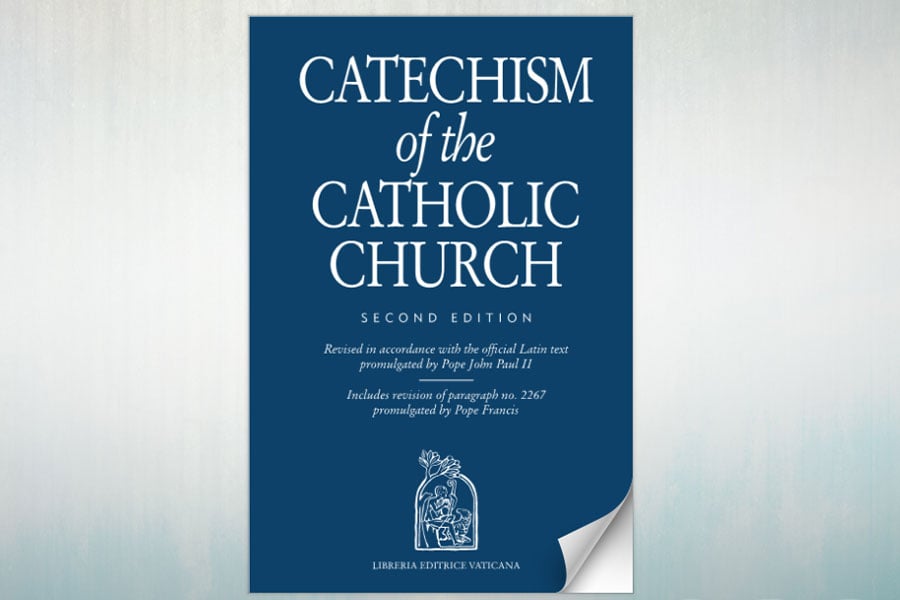Back to Basics with the Catechism

If you are reading this, it probably means you desire to grow in your faith. A key to deepening one’s faith is perpetually calling to mind “the basics” of Catholicism. To that end, let us start with one of the most fundamental: Why did God make you?
Often, when this question is posed to a group of Catholics, one is given the opportunity to hear the beautiful response in unison: “to know Him, to love Him, and to serve Him in this world, and to be happy with Him forever in the next.”
Knowing the answer to this question is important, for it addresses one of the most central questions to human existence: Why am I here?
How often do we stop to think about the ramifications of this truth? Have we, in fact, interiorized God’s purpose in creating us? This is essential to contemplate, for our purpose determines how we should live our lives.
The classic question given above is from the old Baltimore Catechism. In one form or another, it is present in all great catechisms, and the new Catechism of the Catholic Church is no exception. In fact, the Catechism makes this its starting point: “God, infinitely perfect and blessed in Himself, in a plan of sheer goodness freely created man to make him share in His own blessed life” (CCC 1).
There is much herein which could be addressed, but we will keep ourselves to the main point: what does it mean to “share in His own blessed life?”
In essence, it means to become “partakers of the divine nature.” This is ultimately fulfilled in what the Church calls the “beatific vision,” wherein, in the life of heaven, we will “see Him as He is,” face to face. Such is the nature of our purpose and the degree of union our Lord desires.
What must we receive to attain this lofty end? Put simply, we must obtain His divine power, that power which grants us “all things that pertain to life and godliness.” Of course, this begs the question: “Where can we receive this power?”
In short, the answer to this is divine revelation and sanctifying grace. These are the two realities we must receive to attain our supernatural purpose. It is through divine revelation, transmitted to us through Sacred Scripture and Sacred Tradition, authentically interpreted by the Church in its Magisterium, that we come to know God.
It is through sanctifying grace (in the sacraments) that we are enabled to not only know God, but also love and serve Him. Being so supernaturally equipped, we are empowered to live a supernatural life.
However, if we want to live with God in heaven, we must live for God on earth, not just be empowered to do so. Living for God on earth consists of a life filled with faith, hope, and charity. Let us concentrate on hope.
The Catechism defines hope as the “virtue by which we desire the kingdom of heaven and eternal life as our happiness” (CCC 1817). Since hope is about desires, it is about priorities. As such, important questions to ask ourselves can be: “is God, in fact, our ‘number one’”? “Is He our actual preference, over all other things?” This is a serious examination of conscience for us all.
Conscious of our need for His aid to live the divine life, may we all strive to live with Him as our center, revolving around the axis of divine revelation and sanctifying grace, most especially in the Holy Mass. For it is in the Liturgy of the Word and the Liturgy of the Eucharist that we most fruitfully live out our purpose in this life.
